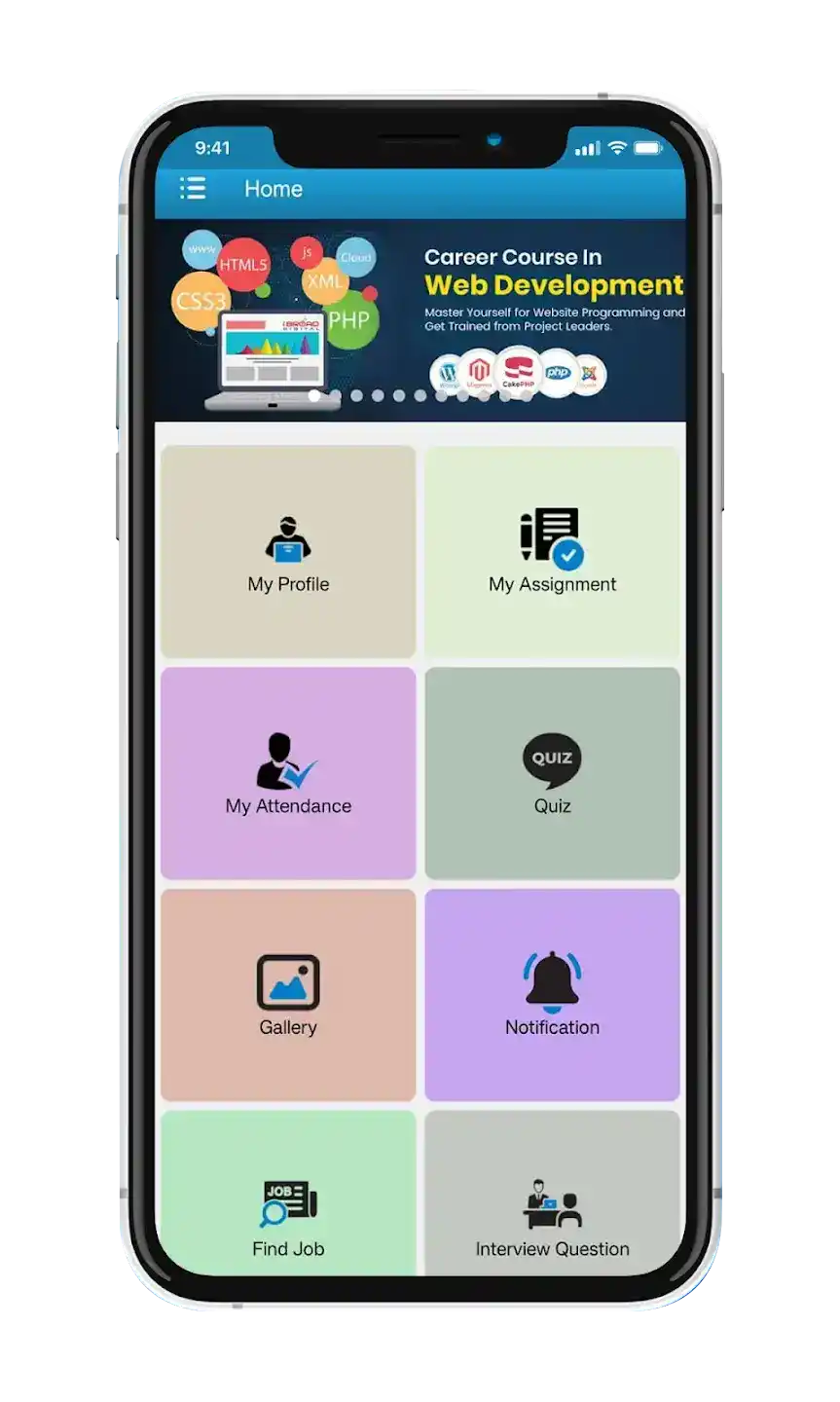Mysql
Mysql
MySQL® is the open source community's most popular Relational Database Management System (RDBMS) offering, and is a key part of LAMP – Linux™, Apache™, MySQL®, PHP/Perl/Python®. Many Fortune 500 companies adopt MySQL to reap the benefits of an open source, platform-independent RDMS, such as simplifying conversion from other platforms and lowering database Total Cost of Ownership by 90%. This class encourages the student to explore database fundamentals, as well as MySQL features. Students learn the basics of MySQL use and the programming of stored routines and triggers. Students also participate in database design discussions, perform administrative functions, learn about optimization and performance tuning, and explore various APIs. This course covers MySQL 5.6.
Course Feature
MySQL
- Duration 1 Month
- Class Timings 1.5 hour a day, 5 days a week
- Eligibility

Course Features
MySQL Course in Jaipur
The demand for MySQL professionals in Jaipur is steadily increasing as businesses and tech companies continue to rely on MySQL for efficient data management. As more organizations embrace data-driven decision-making, the need for skilled MySQL developers and database administrators has grown. Jaipur's expanding tech startup ecosystem, coupled with the rise of e-commerce, digital marketing, and website development, has further fueled the demand for MySQL expertise. Professionals proficient in MySQL can work in various fields such as web development, database management, and data analytics, offering a range of career opportunities. Moreover, the growing trend of freelance and remote work has made MySQL skills even more valuable, with professionals having the ability to work with clients worldwide.
MySQL Institute in Jaipur
A MySQL course at DAAC Institute in Jaipur is designed to provide students with a comprehensive understanding of MySQL, one of the most popular relational database management systems. The course covers all essential aspects of MySQL, from the basics of SQL queries to advanced database management concepts. Students will learn how to set up and manage MySQL databases, perform data manipulation using SQL commands, and optimize database performance. The course also includes topics like database design, normalization, indexing, and securing MySQL databases. Practical hands-on experience is provided to help students work on real-world projects, including integrating MySQL with web applications. By the end of the course, participants will be equipped with the skills needed to work as MySQL developers, database administrators, or support staff in tech companies, e-commerce platforms, and IT firms.
MySQL Course Syllabus
The MySQL course syllabus provides a comprehensive foundation in managing and optimizing databases using MySQL. Starting with an introduction to MySQL, students learn about its installation, architecture, and tools like MySQL Workbench. By the end of the course, students will be proficient in MySQL database design, optimization, security, and integration with web applications. Here you can see our MySQL syllabus:-
MODULE - 1
Database
- MySQL Introduction
- MySQL Installation
- MySQL Administration
- MySQL PHP Syntax
- MySQL Connection
- MySQL Create Database
- MySQL Drop Database
- MySQL Select Database
- MySQL Datatype
- MySQL Create Table
- MySQL Drop Table
- MySQL Insert Query
- MySQL Select Query
- MySQL Where Clause
- MySQL Update Query
- MySQL Delete Query
- MySQL Like Clause
- MySQL Sorting Results
- MySQL Using Join
- MySQL Null Values
- MySQL Regexps
- MySQL Transactions
- MySQL Alter Command
- MySQL Indexes
- MySQL Temporary Tables
- MySQL Clone Table
- MySQL Database Info
- MySQL Using Sequences
- MySQL Handling Duplicates
- MySQL SQL Injection
- MySQL Database Exports
- MySQL Database Import
Minor Exam and Project

Why choose DAAC for MySQL Course
As a leading MySQL institute In Jaipur, we offer MySQL courses and specializations. With our programs, many students have begun their careers. Here are a few reasons why DAAC is a great place to take a MySQL course.
- Hands-on experience with live projects.
- We help you obtain MySQL training, certifications, & jobs in Jaipur.
- We offer free demo sessions.
- Experienced faculty.
- Both practical and theoretical classes are taught.

We Will Contact You, At a Time Which Suits You Best
Benefits of Studying MySQL Course
- High Demand: MySQL professionals are in high demand across industries.
- Easy to Learn: MySQL uses standard SQL, making it beginner-friendly.
- Foundation for Other DBs: Knowledge of MySQL helps with learning other database systems.
- Job Opportunities: Opens career paths in database administration, development, and analytics.
- Web Integration: Works well with web technologies like PHP, Python, and Node.js.
- Real-World Applications: Used in website development, e-commerce, and content management systems.
- Problem-Solving Skills: Develop critical thinking and troubleshooting abilities.

FAQ
Most Comment Question?
Projects
Our Projects
.jpg)
Book an Artiste
.jpg)
The Law Desk
.jpg)
Ebox Tenders
.jpg)
kanhha cables
.jpg)
Rotary
.jpg)
Property Bull
.jpg)
Tirupati Plastomatics
.jpg)
Astro Trishla
.jpg)
Neewara
.jpg)
Zepjob
.jpg)
kbct india
.jpg)
Miss Bali Tropix

Skills Certificate
From the
DAAC

Discover Our App
Access your courses anywhere, anytime & prepare with practice tests










